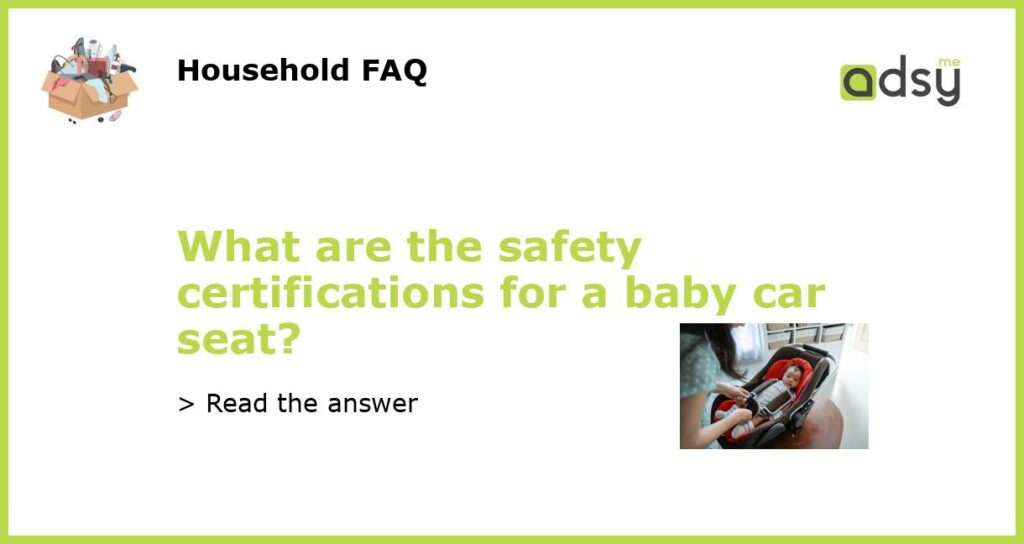The Importance of Safety Certifications for Baby Car Seats
As parents, ensuring the safety of our children is our top priority. And when it comes to travel, one of the most important decisions we make is choosing the right car seat for our little ones. However, with so many options available in the market, it can be overwhelming to make a decision.
One way to narrow down your choices and ensure the safety of your child is by looking for safety certifications. Here are some of the most important safety certifications for baby car seats:
Federal Motor Vehicle Safety Standards (FMVSS)
The FMVSS are regulations set by the National Highway Traffic Safety Administration (NHTSA) in the United States. Baby car seats that meet these standards have gone through extensive crash testing and are designed to protect children in different types of collisions. You can easily identify if a car seat meets FMVSS by looking for a label on the product and in its manual.
Juvenile Products Manufacturers Association (JPMA) Certification Seal
The JPMA is a trade organization that sets standards for infant and child products. Their certification seal indicates that the product meets their safety guidelines, which include testing for stability, structural integrity, and accessibility. When purchasing a baby car seat, look for the JPMA certification seal on the packaging or the product itself.
European Safety Standards (ECE R44/04)
If you’re based in Europe or planning to travel to Europe with your baby, look for car seats that comply with ECE R44/04 standards. These standards are set by the United Nations Economic Commission for Europe and require car seats to meet certain safety requirements, including crash testing.
Australian/New Zealand Standard (AS/NZS
In Australia and New Zealand, car seats are required to meet the AS/NZS safety standards. These standards were developed by the Australian/New Zealand Standards Committee and require car seats to undergo testing for safety, durability, and ease of use.
Good Housekeeping Seal
The Good Housekeeping Seal is a trusted symbol of product quality, safety, and performance. While it is not a safety certification per se, a baby car seat with this seal has been tested by the Good Housekeeping Institute and deemed to be of high quality and safety. Look for this seal on the packaging or the product itself to find a reliable baby car seat.
By looking for safety certifications, you can have peace of mind knowing that the car seat you’ve chosen has undergone rigorous testing and meets certain safety standards. Remember to always read the instructions and follow the guidelines when installing and using the car seat to ensure your child’s safety during every car ride.






